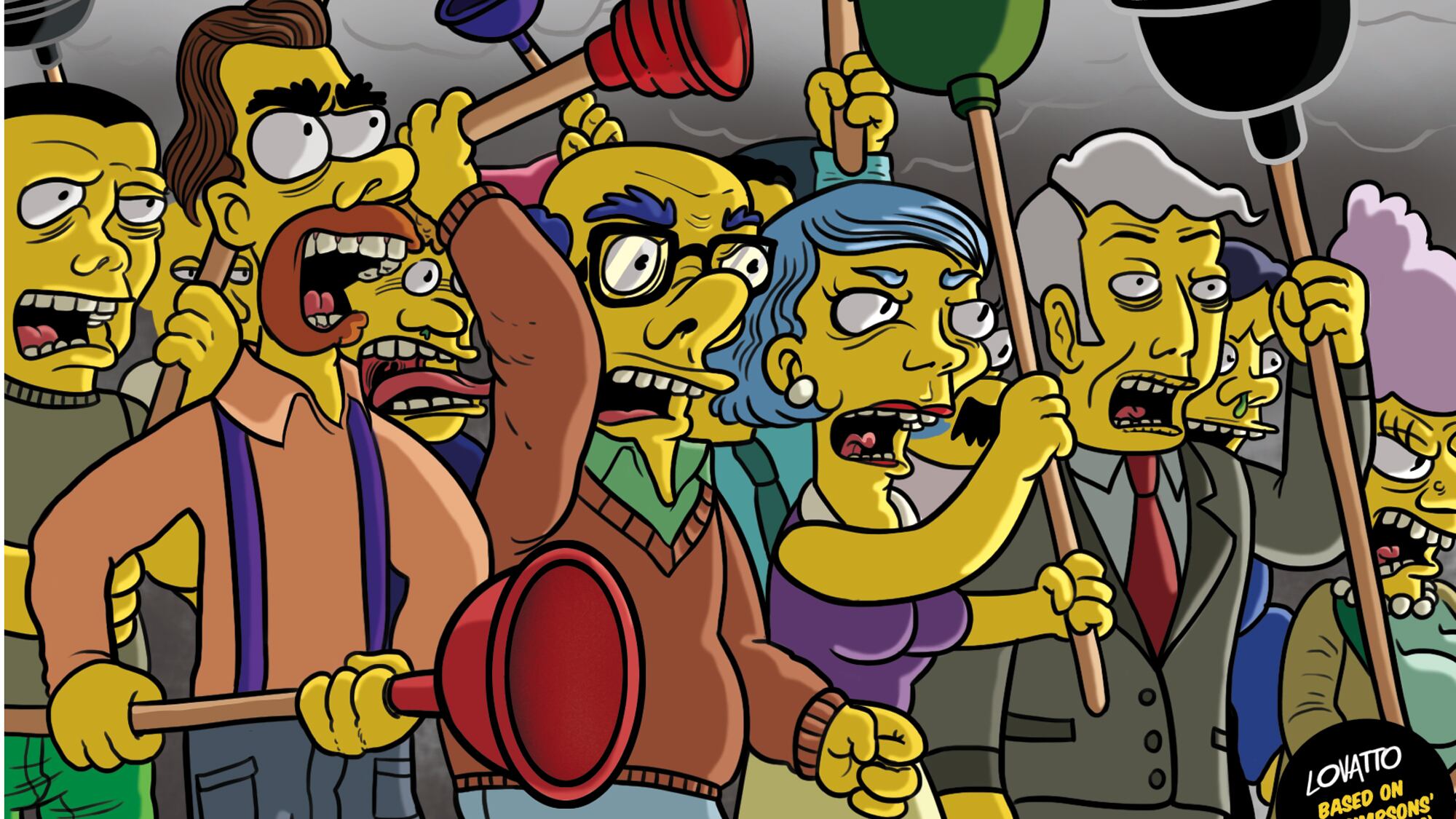Dennis Duffey has been a proud union member for much of the past three decades.
The 54-year-old Portland Bureau of Environmental Services employee has organized the workers at a print shop, sat at bargaining tables across from management, and worked as a shop steward in Bakersfield, Calif.
In 2007, he took a job with the city as a wastewater operator, adding chemicals to water and maintaining machinery at the Columbia Boulevard Wastewater Treatment Plant in North Portland. That makes him one of 1,100 local government employees represented by Laborers Local 483.
But Duffey wants out. He says Local 483 treats sewer workers like second-class citizens in the union—failing to show up for their grievance hearings, negotiating a contract that leaves wastewater workers making far less money than their counterparts in other cities, and pressuring them to vote for that contract.
"If I'm not getting represented, then I have a problem with paying dues," Duffey says. "I call it extortion."
So Duffey and at least five other disgruntled Portland wastewater workers turned to an unlikely ally: the Freedom Foundation, a right-wing, union-busting think tank based in Olympia, Wash., that's increasingly active in Oregon.
On Aug. 29, the foundation filed a public records request with the city's human resources department, asking for the names of 607 public employees who are covered by the same city contract as treatment plant workers. (Local 483 also represents workers at the regional planning agency Metro.)
The nonprofit requested the records after Duffey asked it for help. The foundation says it wants to assist Duffey and his fellow sewer workers in collecting enough signatures from members of Local 483—about 200—so workers may vote whether to stop paying dues.
In 2016, the Freedom Foundation made a large-scale records request for the names of Oregon home health workers within Service Employees International Union Local 503, the state's largest public employee union. Foundation activists landed at the front doors of more than 10,000 workers, urging them to stop paying dues.
The prospect of a similarly invasive campaign in Portland has frightened and angered the rank and file in one of the city's largest public employee unions—who fear a few disgruntled workers have summoned a powerful right-wing force that could jeopardize hard-won gains.
Duffey says since he hooked up with the Freedom Foundation, he has received almost 30 union-printed postcards in his home mailbox, with members calling him a "douche," a "piece of shit" and a "scab." Another says: "Shame on you for supporting the Koch brothers. I hope you lose your union job."
Local 483 leaders say Duffey's gambit is a dire threat to the union, which depends on dues to fund its operations. Wesley Buchholz, former interim president of Laborers 483, calls the foundation's outreach "economic violence."
Buchholz decries the vulgar postcards, but he isn't surprised people are angry. "It's visceral and terrible and mean," he says, "but I'd like to think the balance of those 30 cards are people having a fight-or-flight reaction to their union coming under attack."

The Freedom Foundation is open about its desire to destroy unions.
CEO Tom McCabe told supporters in a 2015 fundraising letter "we won't be satisfied with anything short of total victory against the government union thugs." McCabe also wrote that his think tank "has a proven plan for bankrupting and defeating government unions through education, litigation, legislation and community activation."
Ben Straka, a policy analyst at the foundation, says activists use "various" means to find their targets' email and home addresses. Straka would not elaborate.
Foundation representatives have already shown up at city workplaces in the past month, and Duffey expects door-to-door visits to begin soon.
The new Local 483 contract with the city of Portland gives wastewater operators with 10 years' experience, like Duffey, a 9 percent raise. But this summer, Duffey and other wastewater operators surveyed treatment plant contracts in Pacific Northwest cities comparable to Portland. In some cases, Duffey and his colleagues make 20 percent less than their peers, and this year's contract with the city of Portland won't close the gap.
Some of Duffey's co-workers say they don't want to "bust" Local 483 but to pressure the union into releasing wastewater treatment plant employees so they can join a different union.
"I'm in the laborers union, and I should be in the millwrights union," says one treatment plant employee who requested anonymity because he fears retaliation. "No one likes the Freedom Foundation or what's behind it. [But] nobody's going to break the union up. That's not the goal here."
Buchholz and Local 483 business manager Farrell Richartz both say getting more workers to participate in union activities is the way to deal with internal disagreements, rather than involving an "extremist" organization like the Freedom Foundation.
"Can we get better?" Richartz said, "Yes. We're constantly asking for participation."
Because Laborers 483 represents workers with dozens of different job descriptions, "bargaining is necessarily complex," Buchholz explains.
Richartz adds that the foundation has taken advantage of a few members' grievances to "create division" between members.
Meanwhile, Portland city officials are weighing whether to release employee names to the foundation. (Local 483 has tried to block the request.)
Duffey says whatever the outcome, he doesn't regret bringing in the Freedom Foundation. "I believe unions are in decline," he says, "because of unions like 483."

